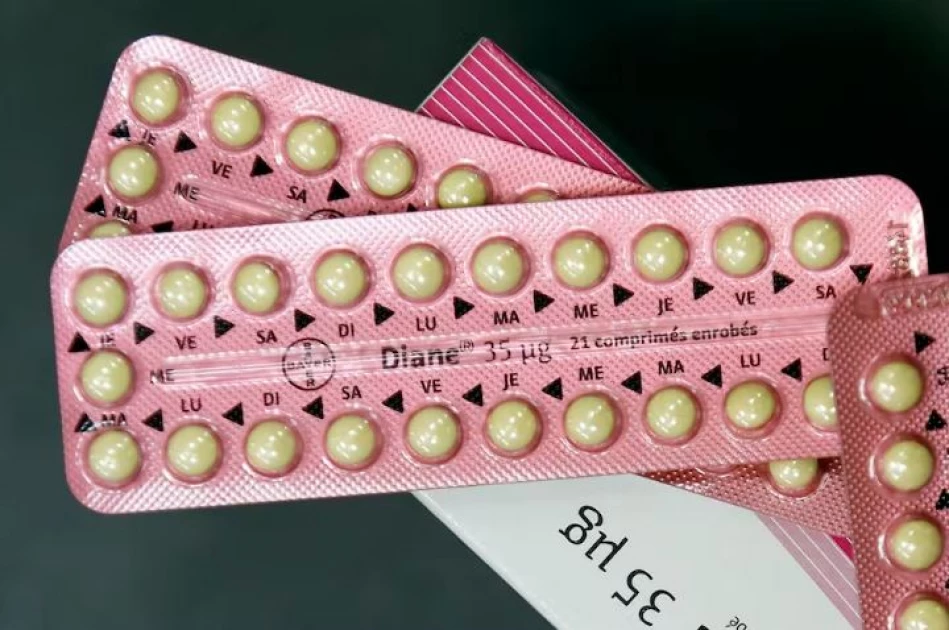OPINION: Gaps in Kenya's health expenditure a blow to Sexual and Reproductive Health

Blister-packs of the contraceptive drug Diane-35. In Kenya, millions of women do not have access to contraception methods. Reuters/Regis Duvignau
Enhancing sexual and reproductive health is one of the most vital investments for personal and societal development. It promotes gender equality, limits the spread of diseases, and improves lives by reducing poverty.
Despite the significant benefits, Kenya is yet to devote the necessary resources to reproductive healthcare services and the health system at large. The Ministry of Health (MoH) has not been receiving adequate resources to finance its operations.
In the 2023/24 budget, government allocated Ksh.141.2 billion towards the healthcare sector, representing 11% of the national budget. This fell short of its commitment to the 2001 Abuja Declaration to allocate 15% of the budget to health.
With healthcare being a devolved function in Kenya, the ripple effect of inadequate resources I counties has left trail of poverty, loss of lives and untold suffering among Kenyans. For a long time, the sector has witnessed strikes and lack of pharmaceutical products.
In 2019/20 fiscal year, 91% of the health budget was spent at the county level and 70% at the national level. This was brought about by untimely disbursement of healthcare funds by the national government and poor coordination between the national government and counties.
And in relation sexual and reproductive healthcare, data shared by the Ministry of Health indicates that Kenya spends 13% of the health budget on reproductive health, 12% on maternal health, and 2.1% on family planning.
Women and girls, especially those living in slums and rural parts of the country have always borne the brunt of the inefficiencies in the healthcare sector. Many are impacted by their inability to go to school or participate in socioeconomic and political activities due to a lack of access to sexual and reproductive health services.
The economic inflation brought by the COVID-19 pandemic and the ongoing conflict between the Ukraine and Russia has exacerbated the situation.
As a result of the high poverty levels in the country, majority of young women and girls are unable to pay out-of-pocket for the services in private health facilities. Vulnerable groups have occasionally been forced to use coping mechanisms like a heavy reliance on credit and participation in transactional sexual activities, hence putting their lives at risk.
If filled, glaring gaps in the health sector can enable Kenya to be on the right path towards efficient health expenditure, and better SRHR services for women and girls.
The challenges of the Treasury's delayed delivery of money, lengthy and complex procurement processes, and the health sector's limited understanding and participation in Public Finance Management (PFM) processes can be addressed by streamlining the country’s procurement systems.
The creation of tax-based health finance schemes ensuring that everyone, regardless of social or economic standing, receives high-quality healthcare cannot be overemphasized. Expanding health insurance coverage and implementing innovative public-private partnerships for health funding can go a long way in improving provision of healthcare services for most of the population who are not able to acquire private insurance.
World Health Organisation in a report dubbed Health Systems Financing, the path to Universal Health Coverage (2010), suggests need to provide subsidies and tax exemptions or reducing the cost of SRHR commodities. This will enable vulnerable women and girls (like the refugees and those living in urban poor areas) to afford reproductive healthcare services.
The full value of investing in sexual and reproductive health services has been underestimated, as its wide range of benefits has been largely unrecognised in Kenya. The country cannot afford to not adequately fund and address inefficiencies in budget expenditure in provision on sexual and reproductive health services to achieve sustainable development goals.
Want to send us a story? SMS to 25170 or WhatsApp 0743570000 or Submit on Citizen Digital or email wananchi@royalmedia.co.ke
Comments
No comments yet.


Leave a Comment